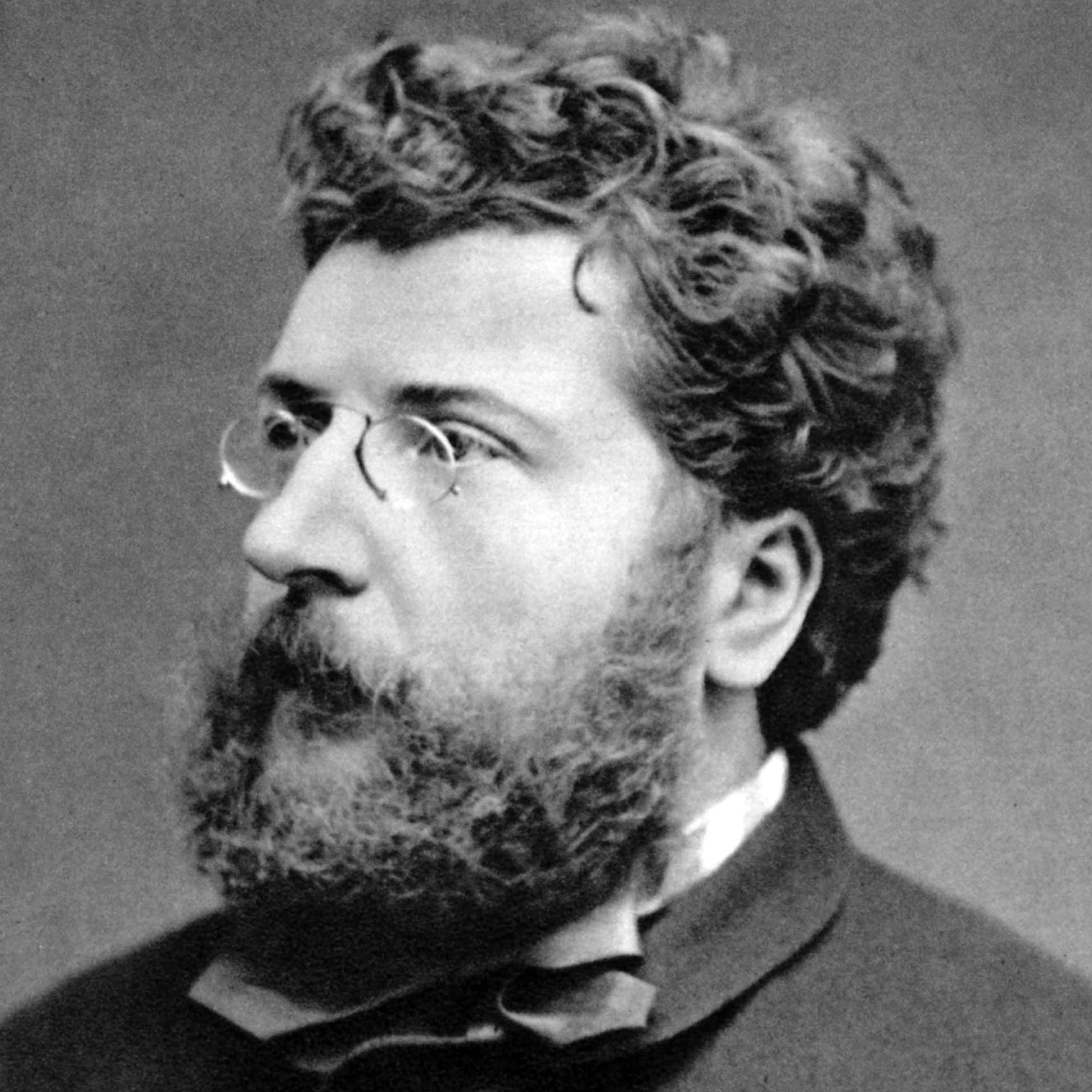
Bizet
Born: 1838
Died: 1875
Georges Bizet
It’s one of musical history’s cruellest blows that after so many doubts and set-backs, Bizet’s life should be extinguished at the very point when he had completed the first work of his maturity.
Explore Bizet's life and music...
Georges Bizet – a centennial tribute (Gramophone, October 1938)
From the archive: John W Klein's appraisal of the composer from Gramophone in October 1938... Read more
Think of Bizet and you think of Carmen. Most people would have to think hard to name another work. Perhaps it comes as a surprise to learn that he began his career as a child prodigy on the piano, entering the Paris Conservatoire when he was only nine. (He was the son of professional musicians, his father a singing teacher, his mother a fine pianist herself.) He wrote about 150 pieces for the piano, though of them only a set of piano duets is still played today; by the age of 17 he had written his first symphony, quite the equal of anything Mozart or Mendelssohn wrote at the same age. He won the coveted Prix de Rome in 1857 and went off to Italy to study, joined two years later by his lifelong friend Ernest Guiraud, the 1859 prize winner. It was altogether a promising start and his natural talent soon attracted attention. Then it all went off course.
The problem was Bizet’s incredible facility, which made it difficult for him to decide on any one project; those he did land on generally turned out to be failures. Throughout the 1860s Bizet wrote a string of unsuccessful operas. He had an unerring eye for a weak libretto and a penchant for setting them to uneven music – works like The Pearl Fishers and The Fair Maid of Perth. Ideas that initially filled him with enthusiasm were abandoned and he found it difficult to focus his creative energies, happy to settle for an undemanding way of life. This included a relationship with the fantastic adventuress Céleste Mogador, his neighbour in Le Vésinet, the little village just outside Paris where Bizet lived in the cottage his father had built, overlooking the banks of the Seine. By the time he was 30, he had little to show for all his early promise.
He was a plump young man with a short temper and an addiction to chocolate, cakes and petit fours. He was always to be seen elegantly dressed and invariably nibbling a bon-bon. In 1869 he married the daughter of Jacques Halévy, his old professor at the Conservatory and the composer of an immensely popular opera of the day called La Juive. (Geneviève Bizet was later to become the model for Proust’s Princesse de Guermantes.) More aborted schemes followed and then, slowly, it all began to take shape. He wrote an opera called Djamileh in 1872. Now, although it was another disastrous failure (due in part to the total miscasting of the title-role), many discerned an originality and lyrical gift that hitherto had not been recognised (the opera later became a great favourite of Mahler’s). In 1871, too, Bizet had come up with some delightful pieces for piano duet entitled Jeux d’enfants. At the same time he received a commission from the Opéra-Comique and was able to write to a friend of ‘the absolute certainty of having found my path’. The libretto was by two experienced men of the theatre who had provided the librettos for some of Offenbach’s successes: Henri Meilhac and Ludovic Halévy (a cousin of Bizet’s wife). The opera was to be Carmen. Meanwhile, Bizet had produced the incidental music for Daudet’s play L’Arlésienne. In the theatre, the music was a failure but, having rescored some of the music and formed it into a suite, Bizet found he had a success on his hands at last.
The struggle to mount Carmen and the reaction of the first night audience to its subject matter must, however, have disheartened Bizet further. ‘A definite and hopeless flop,’ Bizet pronounced after its unenthusiastic reception. In fact, he had been paid a handsome 25,000 francs for the score by his publisher and had been made a Chevalier of the Légion d’honneur on the eve of the premiere but, nevertheless, he was right in his initial assessment. Fate decreed that he should not live to see his masterpiece acclaimed. On the evening of the 31st performance of Carmen, Bizet died of a heart attack brought on by a throat affliction (probably cancer) from which he had suffered intermittently since his days in Rome. He was 36. Carmen rapidly grew in popularity. Had Bizet lived another few months he would have experienced its total triumph; another three years and he would have seen it produced in almost every major opera house in Europe.

Gramophone Digital Club
- Digital Edition
- Digital Archive
- Reviews Database
- Full website access
From £8.75 / month
Subscribe
Gramophone Full Club
- Print Edition
- Digital Edition
- Digital Archive
- Reviews Database
- Full website access
From £11.00 / month
Subscribe
If you are a library, university or other organisation that would be interested in an institutional subscription to Gramophone please click here for further information.





